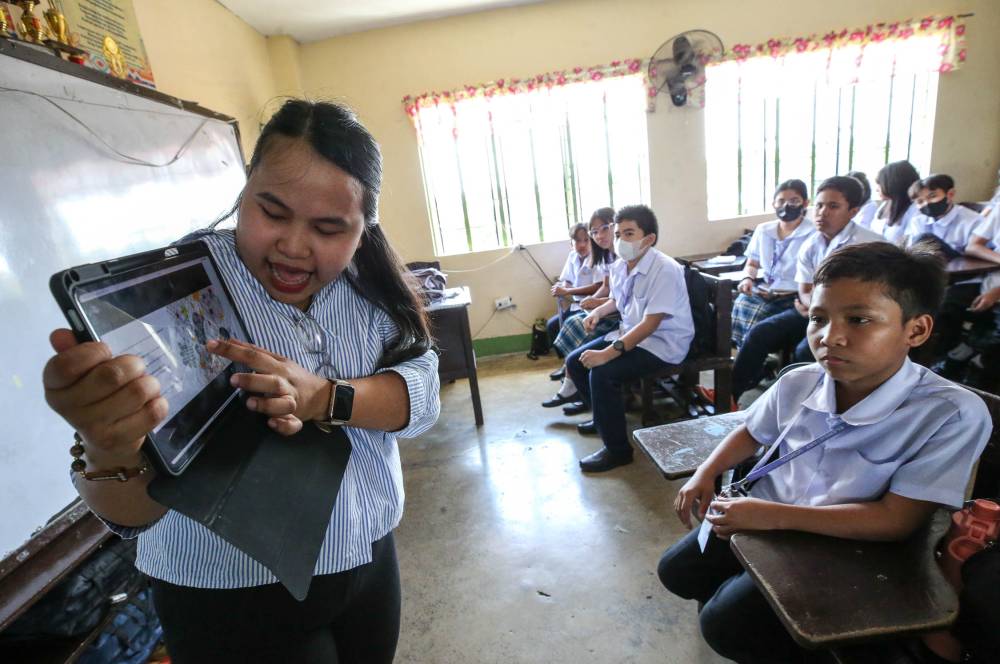Lessons on literacy from Vietnam

The Second Congressional Commission on Education (EdCom II) recently visited Vietnam to learn its best practices in education and literacy. We were intrigued by how our Asean neighbor outperformed other countries in the Programme for International Student Assessment (Pisa) despite being in a similar economic level as our country.
One of the key issues we looked into was reading literacy, focusing on the primary years. What was clear from our discussions with the Ministry of Education and Training (MoET) was that Vietnam prioritizes primary education. While government investments in education seem similar between our two countries, Vietnam actually spends more on its students per capita at the primary level. For instance, in 2013, Vietnam spent $745.8 per student in Grades 1 to 3, while we spent only an average of $328.
As cited in the EdCom II Year One Report, while annual spending on education per student in the Philippines has nearly tripled from 2015 to 2019, data show that most of the additional resources went to higher education. The commission also noted that Vietnam deliberately reformed early childhood education and primary education before investing heavily in higher education—a crucial factor in its successful reform program.
Finally, to make sure that no learner is left behind, the Vietnamese government spends twice as much for students in remote areas, especially those from its 53 ethnic minorities. While provincial governments are primarily responsible for implementation, the national government is deliberate in filling funding gaps in poorer areas to ensure sufficient resources. Affirmative action programs, including boarding houses for disadvantaged students and teacher incentives, complement this.
While literacy depends on a host of variables, these critical features stand out in Vietnam: a robust system of assessment that informs educational interventions, timely delivery of learning resources and supplies, teacher training, and development opportunities.
Striking a balance between providing adequate support and enforcing accountability means we must know how our students are doing. In the EdCom Year 1 Report, we noted how the current Department of Education is hobbled in effectively utilizing assessment data due to poor teacher data literacy and other challenges that affect learning delivery, such as congestion in the curriculum and lack of teaching resources. Moreover, while policies institutionalize a range of systems-level assessments at specific key stages, many are not administered on time, delays that prompt lower governance tiers to conduct supplementary assessments that are time-consuming and not useful for long-term planning or policymaking.
This is in stark contrast to Vietnam’s articulated assessment system that explicitly links classrooms to national and international assessments. In addition, Vietnam also implements assessments aimed at ensuring early literacy of Grade 3 and Grade 5 learners. Results of these assessments inform interventions and enable teachers to assist students who need additional support. A high-stakes test at Grade 9 also determines whether a student can pursue upper secondary school. More importantly, results of classroom assessments are shared with parents, who then help monitor their children’s progress.
Data from the SEA-PLM, or the Southeast Asia Primary Learning Metrics, in 2019 show that textbook access can affect learning outcomes. EdCom findings indicate that only 27 textbook titles were successfully procured in the Philippines between 2012 and 2022 (mostly for Grades 5 and 6), while Vietnam was able to deliver books as early as the summer before the start of the next school year.
Teaching is a highly esteemed profession in Vietnam, attracting top professionals to the sector. During the meeting with MoET, officials said teachers “must be the most outstanding people in society,” and that there are incentives in place to attract the best talent.
When we started our work in the commission, we were purposive in our intent that policy recommendations should be anchored not only on a comprehensive diagnosis of the challenges we face, but also informed by best practices or positive deviants locally and abroad. Vietnam was one of the easiest choices for comparison, given the comparable scale of our education systems and similar economic context. This is critical in ensuring that our proposed policies are well thought-out, anchored on programs that show easy implementation, and most importantly, have an actual impact on learning outcomes. As we continue with our work this year, we will pursue our intent to dig deep and learn from Vietnam’s best practices, while also learning from our own. -BY DR. KAROL MARK YEE
Dr. Karol Mark Yee is executive director of EdCom II. EdCom II is a body created by Republic Act No. 11899 to assess the education sector of the country and recommend policies and laws for its improvement. More information can be found at www.edcom2.gov.ph.
















